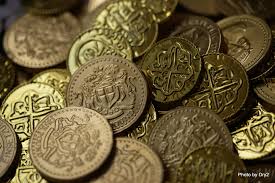Like any symbol, rich and poor is very hard to define because it has a lot to do with our own perceptions. To me, it appears that we have two delineated groups of people who have shared understandings of what it means to be rich:
- The Bottom 80% consider the top 20% rich
- The top 20% consider the top .1% rich (or smaller)
We could break this definition down into an infinite set of categories, but for the purpose of political and philosophical debates, it appears that these shared understandings are good enough to get further into the debate. In reflection to my time living in each of these groups, I will now add my own definitions:
When I lived in the bottom 80%, including the bottom 10%, I considered rich to be:
- Able to afford all necessities (food, utilities, etc)
- Can handle an unexpected bill
- Live in a nice house
- Have a nice car or cars
- Can afford travel
- Can afford buying things which are symbolic of power (jewelry, watches, etc)
As my income increased and it put me in the top 20% I started to create a set of necessary but insufficient conditions. When all of these conditions are met, I consider you rich:
- Do not receive more than 10% of your income from W2 earnings
- Have total net worth capable of sustaining an income of more than $500K US per year
- Have made enough transaction decisions, measured in the the tens of thousands, to be very comfortable and logical when making them
- Have made enough transaction decisions, measured in the millions of dollars, to be very comfortable and logical when making them
- Have become completely comfortable making $5000+ decisions (in 2020 dollars)
- Do not have a significant emotional reaction to transactions (either positive or negative)
While not all encompassing, I think this definition captures a shared understanding that people display when debating in social media, at parties, etc. While poor people receive an almost ecstasy-like sensation when making large financial transactions, rich people do not. It’s as if they have made so many that it just doesn’t matter to them as much. I consider this a critical distinction. Gaining expertise in making financial decisions, like practicing a sport, prepares you for the game. When, you are poor, it is a game of life and death. When you are middle class, you don’t even know that it’s a game. When you are rich, you are playing the game with full knowledge.
I decided to share my definition of rich and poor because I think having navigated so much financial territory, I have a unique perspective. I have definitely lived in poverty, but now the bottom 80% would probably consider me rich. Even the richest of the rich would understand and concur that I have seen how they live and understand it. I can comfortably sit in a room with a person with $100M in wealth and have an interesting conversation.
The top 1% worldwide has assets worth above $770,000 USD (per Investopedia – May 2019). While the average earner in the top 1% of the United States earns 1.32M a year (per CNBC – July 2018). Another definition that helps is High Earners, Not Yet Rich (Henrys) coined in 2003. Sadly, none of these have ever given me satisfaction when discussing the concepts of rich and poor in the context of economics, philosophy or politics because they lack any provision for “why” they people earn what they do.
Feel free to use any of these definitions when you are debating the meaning of rich and poor, but remember to consider that economics is a model, an approximation, used to describe human interactions in a financial context, mostly in the last 500 or so years. It cannot and does not describe why people find things important. In my humble opinion, Anthropology (coincidentally an offshoot of in the London School of Economics) does the best job of describing the fullest range of values that humans place on our interactions and culture. Even then, only an approximation. Only you can determine the value you place on anything 🙂
